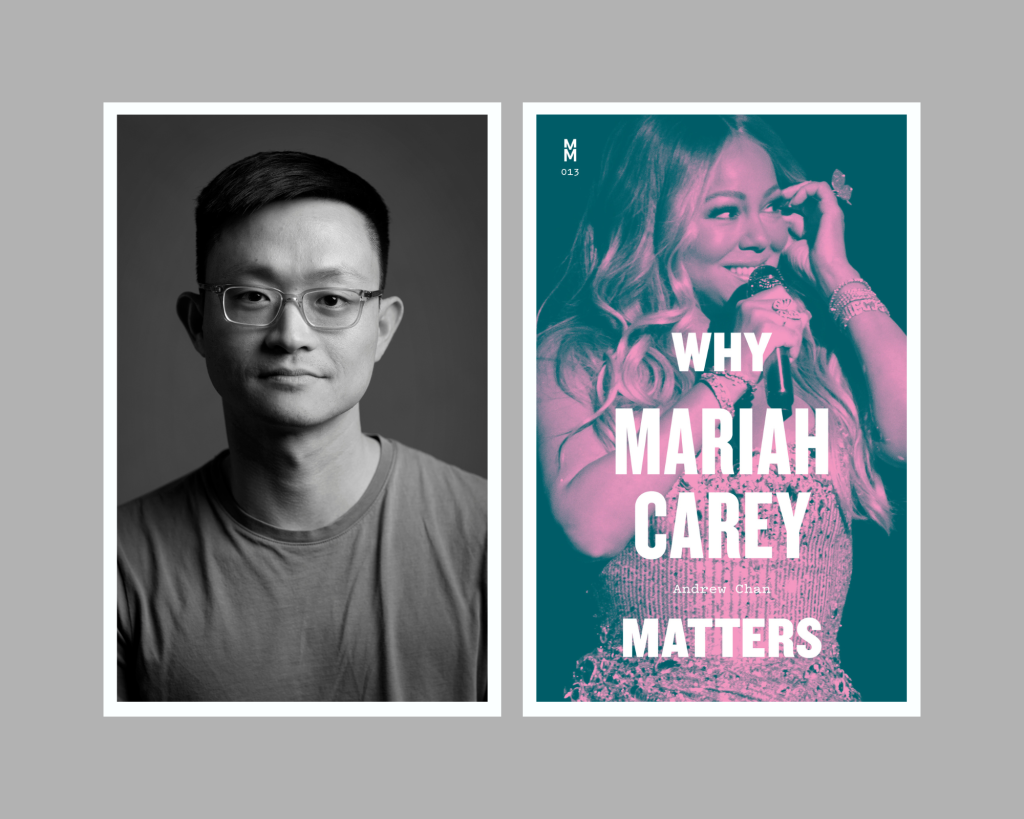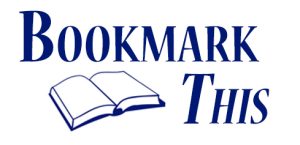Bookmark This is a feature that highlights new books by College of Arts and Sciences faculty and alumni, published the first week of each month. This month’s featured book is Why Mariah Carey Matters (University of Texas Press) by Andrew Chan ’08.
 Q: Can you give us a brief synopsis of your book?
Q: Can you give us a brief synopsis of your book?
A: Why Mariah Carey Matters is the first book to critically examine the music and artistry of one of the world’s greatest pop stars. Much of what has been written about Carey has focused on her celebrity persona and her chart success. What I wanted to do was take her seriously as a musician, understand how her music does what it does and explore what was happening in American culture toward the end of the 20th century that made an artist like her possible. I dive into how she soaked up the influences of a diverse array of genres and styles, how she has pushed the sounds of pop and R&B into new directions, how her mixed-race identity shaped her approach to music and the public’s perception of her, and how she has cultivated a profound and unique relationship with her LGBTQ fans.
 Q: How does this fit in with your research interests and passions?
Q: How does this fit in with your research interests and passions?
A: I have been writing about music for most of my professional life, but it has never been my primary focus; I work as an editor of a film publication, and most of the criticism I’ve written up to this point has been about cinema, which I think of as my home base. But over the years, when I have written about music, I’ve gravitated to the work of great singers in the soul tradition — Aretha Franklin, Marvin Gaye, Donny Hathaway, Teena Marie. I see Mariah as an inheritor of that tradition, and as my personal entry point to the history of R&B and hip-hop. I was excited to write this book not just because I’ve been a longtime fan of her music but also because the project gave me an opportunity to learn about the historical context of her artistry and to articulate, if only for my own benefit, my passionate attachment to a virtuosic vocal style, rooted in R&B and gospel, that became globally popular in the ’90s.
Q: What was the original idea that made you think: “There’s a book here?”
A: In 2020, I wrote an article about Mariah for NPR Music and initially thought that would satisfy my desire to weigh in on her. But I soon realized that I had too much left to say, more than would fit into the confines of an album review. What’s fascinating about Mariah is that her work reflects the evolution of so many distinct fields in American music — not just pop and R&B and hip-hop, but also house, jazz, gospel. Grappling with her artistry is a great way to learn about the history of the music that matters most to me. And it’s also an interesting chance to understand how someone’s celebrity image and the forces of racism, misogyny and homophobia can occlude or undermine the achievements of a singer-songwriter as gifted as she is. I wanted to restore the sense of shock and strangeness I find in her work, which, in my opinion, has been domesticated and diluted by her ubiquity.
Q: What surprised you when researching/writing this book?
A: I was occasionally stunned by memories — particularly moments of connection with other fans of this music — that I hadn’t thought about in many years or had almost entirely forgotten. I didn’t grow up surrounded by a lot of Mariah fans, so I tend to look back on my childhood relationship to Mariah’s music as a very private, intimate, insular one. But in the process of thinking about her over the course of the year that I wrote the book, a lot of these buried memories rose to the surface. They’re definitely hazy, and the details elude me, but they point to the emergence of what could be called a queer aesthetic sensibility. That was surprising and moving to me.
Q: Where’s your go-to writing spot, and how do you deal with writer’s block?
A: I wrote most of the book in my small studio apartment in Brooklyn — which is sort of similar to how I first experienced Mariah’s music in my youth, in the privacy of my bedroom, through headphones. It was an introspective experience. Writer’s block can be paralyzing, but in this case it didn’t feel like an option — I was compelled and driven the whole way through, sometimes by passion but mostly by curiosity, and that sense of focus usually overrode the anxieties and uncertainties that come with a writer’s first book. For me, there isn’t one surefire solution for writer’s block, but most of my approaches to combating it involve loosening up and, however momentarily, lowering the stakes: composing longhand so I feel like I’m just writing a letter to a close friend or typing into an email draft. For me, it was important to find ways to distract myself from the gravity of the subject — I knew, ultimately, that I was just talking about a pop star, but the topic nevertheless felt heavy to me. I think when you’re able to unclench your fists, you make possible the kinds of connections and mental detours that can surprise you — and that surprise is what makes the work of writing worthwhile.
Andrew Chan is a writer based in Brooklyn, New York. He graduated in 2008 from UNC-Chapel Hill, where he was a Thomas Wolfe Scholar and majored in English and Asian Studies. His work has appeared in 4Columns, Film Comment, the New Yorker, NPR and other publications. He is a senior editor at the Criterion Collection.
Listen to a New Books Network podcast interview with Chan.
Nominate a book we should feature by emailing college-news@unc.edu. Find previous “Bookmark This” features by searching those terms on our website.
